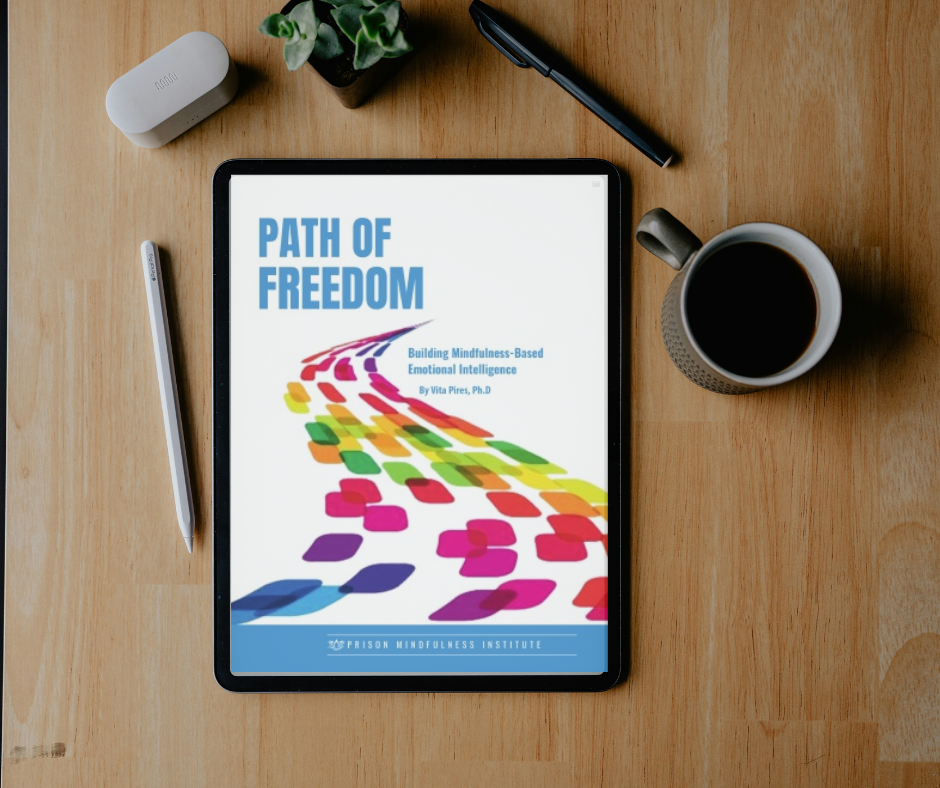Forgiveness at Women’s and Minimum
- May 17, 2012
- 3 min read
The forgiveness we talk about in the Path of Freedom is first and foremost a personal choice about how to relate to the present moment. At both prisons I started the conversation by asking, “Why would we talk about forgiveness in a stress reduction class?” In both places there was clear acknowledgment and agreement that NOT forgiving keeps you stuck swirling endlessly in negative and painful emotion (in other words, STRESS). In that sense, forgiveness is simply a sensible thing we can do to take care of ourselves. Agreed in theory, but how to negotiate this terrain?
After nailing down the downside of blame and grievance, we dove into Fred Luskin’s unenforceable rules. In both prisons, this discussion seemed to register with both surprise and assent. After all, when we start looking, it’s easy to see that our whole life (and certainly every relationship) is made up of hundreds of unenforceable rules. But once we get a sense of how hopeless enforcing our unenforceable rules is, the question becomes what to do with them. When I asked that question at Women’s today, a woman replied, “Well, maybe I’m off track here, but I think you just need to figure out what’s really important to you and say, “I really wish that it was that way.” And then you have to make decisions for yourself about what’s right for you if those wishes aren’t met, which might mean changing the relationship.” Not only NOT “off track”– but in fact, this is exactly Fred Luskin’s advice on the matter.
And what about letting people off the hook? At men’s minimum, several guys nodded in agreement that indeed something had been done to them that was unforgivable and that forgiveness was not an option. In one fellow’s case, he spoke of the person who had “double crossed him” and how he couldn’t forgive the guy for the hardship this has created for his wife and kids. Interestingly, as Fleet fielded his frustration the conversation slowly shifted away from the other guy to himself and how he couldn’t forgive himself for not being there for his family.
Fleet framed the layers of forgiveness this way:
First, we decide to let go of a past resentment because we see that it’s in our enlightened self interest to not live in bitterness/anger. This first layer lives at the core of the Path of Freedom material because it is about expanding personal choice.
At some point, we might find it useful to take another look at what happened and to own our part of the situation. For example, we might use the CPA questions (“how did I create, promote, or allow it?”) of the “above the line / below the line” exercise to step into the empowered world of radical responsibility.
We also might one day be willing to look at what might have been going on for the other person at the time (e.g., recognizing the underlying feelings and needs at play and that “everything everyone does is an attempt to meet an unmet need and make their life more wonderful”). By cultivating empathy for what was underneath the behavior, we deepen our natural inclination to let go.
And lastly, we POSSIBLY decide to consciously extend forgiveness to the other person (which may or may not include communicating this to the other person).
This brings us to the question of reconciliation, which was, in one woman’s view, a necessary step in forgiveness. However, when I suggested that insisting on reconciliation sounded to me like another unenforceable rule– she lit up. “Oh wow– a bell just went off for me! I get it!”
In both classes we did the “Thank You” meditation as a way to “change the channel” from resentment to gratitude, but at women’s I also invited them to try using the “This too” mantra. “This too” is a practice I learned many years ago (from Joseph Goldstiein perhaps?) where you silently meet whatever is happening with the words “this too,” as in, “this too is part of my experience in this moment.” As I kept watch over the room as we sat for a full 12 minutes (our longest sit to date…), it was incredible the shift this offered me. Instead of noticing the sleepers and fidgeters and calculating how to engage the disengaged and redirect the misdirected, I simply embraced every person with “this too.” A genuine joy for each individual showing up just as they are rose up in my heart and I was reminded, yet again, of the power of encountering the world with inclusion and love.




Comments